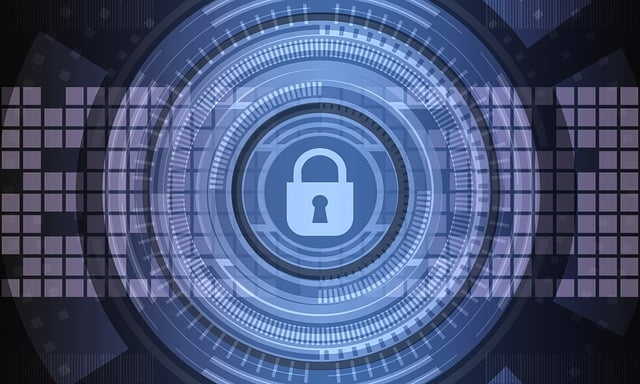As our world becomes increasingly digitized, the risk of cybercrime increases. For this reason, we need to be protective of our devices.
In this blog post, we will discuss what hacking is, how to protect yourself from getting hacked, and how to protect your business from hackers.
What Is Hacking?
Hacking is the process of gaining unauthorized access to a computer system or account by breaching an electronic device or network. It is also a type of cybercrime in which a person or group of people gain unauthorized control over computer network security systems for illicit purposes. Hacking is not inherently wrong; but, it is usually linked to unlawful behavior and data theft.
Who Is A Hacker?
A hacker is a person who uses their technical skills to gain illegal access to computer systems or networks. Hackers can be motivated by various reasons-we will talk about these in the next section. There are many types of hackers, and not all are criminals. Some are white hat hackers who use their skills to help businesses find and fix security vulnerabilities. However, there are also black hat hackers who use their skills for malicious purposes.
Reasons For Hacking
Hacking can be done for several reasons, including;
- Financial Gain: One of the most common reasons for hacking is to make money. Cybercriminals can hack into systems and steal sensitive information, such as credit card numbers, bank accounts or social security numbers. They can then sell this information on the black market.
- Political Motivation: Some hackers hack for political reasons. They may want to draw attention to a cause or issue, or they may want to disrupt the operations of a government or business.
- Challenge: Some hackers do it simply for the challenge. They enjoy testing their skills and see hacking as a game.
- Corporate espionage: Businesses may hire hackers to steal trade secrets or competitive information from other companies.
- Personal gain: Hackers may also hack for personal reasons, such as to get revenge on someone or to steal someone’s identity.
Hacking Tools
Hackers use hacking tools to exploit vulnerabilities in systems and gain access to sensitive information. Hacking tools can be used to carry out a variety of attacks, including DDoS attacks, phishing attacks, and SQL injection attacks. These tools can also be used to access sensitive information, such as login credentials and credit card numbers. Hacking tools are a severe threat and can lead to significant damage. Some of the most common hacking tools include:
Malware
Malware is a type of software that is designed to damage or disable computer systems. Hackers can use malware to steal sensitive information, delete files, or disable systems.
Viruses
Viruses are a kind of malware that can replicate themselves and spread from one computer to another. Viruses can be used to delete files, damage systems, or steal sensitive information.
Trojans
Trojans are malware that allows hackers to gain access to a computer system or network. Like malware, Trojans can be used to steal sensitive information, delete files, or disable systems.
Worms
Worms are a type of malware that can spread itself from one computer to another without user interaction. Worms can be used to delete files, damage systems, or steal sensitive information.
Hacking Techniques
1. Distributed Denial of Service (DDoS) Attacks
A distributed Denial of Service or DDoS attackis a type of hacking in which a hacker floods a computer system or network with traffic, causing it to crash. DDoS attacks are often used to take down websites or disable systems.
Such attacks are usually carried out by botnets, which are networks of computers that have been infected with malware. The botnet sends traffic to the target, overwhelming it and causing it to crash.
DDoS attacks can be very difficult to defend against. However, there are some steps you can take to protect yourself, including using a DDoS protection service and keeping your systems up to date.
2. Phishing
Phishing is a type of hacking in which a hacker tricks a user into giving them sensitive information, such as passwords or credit card numbers.
Phishing attacks are often carried out by email or SMS and can be very difficult to spot. Hackers will often create emails that look like they are from a legitimate company or organization and trick the user into giving them sensitive information. Phishing attacks are sometimes hard to spot. However, there are some steps you can take to protect yourself, including being aware of phishing emails and never clicking on links or attachments from unknown senders.
3. SQL Injection
SQL injection is a type of hacking in which a hacker inserts malicious code into a database, executing arbitrary SQL commands.
SQL injection attacks can be hazardous, allowing hackers to access sensitive information, delete data, or even take control of the database. However, there are some steps you can take to protect yourself, including using parameterized queries and input validation.
SQL injection attacks are a severe threat and can lead to the theft of sensitive information or the deletion of data. If you are the victim of a SQL injection attack, it is vital to seek help from qualified security professional.
4.Man-in-the-middle Attacks
Man-in-the-middle attacks occur when a hacker intercepts communication between two parties and eavesdrops or alters the data being exchanged.
Man-in-the-middle attacks can be hazardous, allowing hackers to gain access to sensitive information or even take control of the communication. You can protect yourself from such attacks by using encryption and verifying the identity of the parties you are communicating with.
Ethical Hackers/Hacking
While criminal hackers misuse hacking tools for malicious purposes, there are also ethical hackers. Ethical hacking is the process of using tools and techniques to find and fix security vulnerabilities. Ethical hackers are also known as white hat hackers.
This type of hacking can help businesses improve their security posture by identifying and fixing weaknesses before criminals can exploit them.
Types of Hackers

There are many different types of hackers. We’ve talked about ethical hackers above, but this section will discuss other types of hackers you may encounter on the internet:
Black hat hackers: A Black hat hacker is a criminal hacker who uses their skills for malicious purposes. The intent is usually to steal data, violate private networks, transfer funds from bank accounts, and more.
Grey hat hackers: Grey hat hackers are hackers who fall somewhere in between white hat and black hat. They may use their skills for both good and evil purposes.
Green hat hackers: A Green hat hacker is a novice who is learning how to hack.
Blue hat hackers: A Blue hat hacker is a security professional a company hires to test its security.
Red hat hackers: A Red hat hacker is an expert who uses his skills to find and exploit weaknesses in systems.
Script kiddies: Script kiddies are amateur hackers who use pre-written code to launch attacks. Often, script kiddies do not have the technical skills to write their code, but they can still be dangerous.
Devices Most Vulnerable To Hacking
Computer Systems: Desktops, laptops, and servers are all vulnerable to hacking.
Smartphones: Smartphones are vulnerable to hacking if they are not adequately secured.
Tablets: Tablets are vulnerable to hacking if they are not adequately secured.
IoT devices: IoT devices like smart TVs and security cameras are vulnerable to hacking.
How To Protect Yourself From Hacking

There are a few things you can do to protect yourself from hacking:
1. Keep Your Software Up To Date
Hackers often exploit security vulnerabilities that have been patched in newer versions of software. Keeping your software up to date can make it more difficult for hackers to gain access to your system.
2. Use Strong Passwords
Strong passwords are one of the most important things you can do to protect your accounts from being hacked. Be sure to use a different password for each of your online accounts, and avoid using easily guessed words like “password” or “123456.”
If you are worried about forgetting passwords, you can use a password manager. Password managers are useful tools for helping people use strong, hard-to-crack passwords without having to worry about remembering them.
3. Enable Two-factor Authentication (2FA)
Two-factor authentication is an extra layer of security that requires you to enter a code from your phone and your password. This makes it much harder for hackers to access your account, even if they have your password.
4. Use A VPN
A VPN (Virtual Private Network) encrypts all the traffic between your computer and the VPN server, making it much more difficult for hackers to eavesdrop on your activities.
Hacking And Businesses
Businesses often target hackers as they can be a source of valuable information. It only takes one of your employees clicking on an innocent-looking link in an email to download a malicious program that could harm your business.
How To Protect Your Business From Hacking
If you own a business, there are a few things you can do to protect your business from hacking:
1. Educate your employees
Employees are often the weakest link in a company’s security. Be sure to educate your employees about security risks and provide them with the training they need to identify and avoid potential threats.
2. Implement A Security Policy
A security policy is a document that outlines your company’s stance on security. It should address password policies, data encryption, and access control.
3. Use A Managed Security Service
A managed security service can help you keep your systems up to date and secure. They can also help you respond quickly if your business is the victim of a hack.
4. Do Not Login As An Admin By Default
The username “admin” is one of the most frequently utilized usernames among IT departments, and hackers take advantage of this knowledge. By default, you are making yourself a hacking target using this name, so do not use it unless necessary.
6. Hire An Ethical Hacker
As stated earlier, an ethical hacker is a person who hacks into a system with the owner’s permission to find security vulnerabilities. Hiring an ethical hacker can help you find and fix security issues before malicious hackers exploit them.
How To Recover After Being Hacked
If your business has been the victim of a hack, there are a few things you can do to recover:
1. Change all of your passwords
Once you’ve been hacked, it’s essential to change all of your passwords. This will help prevent the hacker from gaining further access to your systems.
2. Restore Backups
If you have data backups, you can restore your systems from those backups. This will help you get back up and running quickly, and it will minimize the amount of data that is lost.
3. Contact A Security Consultant
A security consultant can help you assess the damage and make recommendations for improving your security in the future. Hiring a security consultant is essential in protecting your business from future attacks.
Conclusion
No matter your business type, it’s essential to be aware of the hacking risks and take steps to protect yourself and your business. Following the tips in this article can make it much harder for hackers to target you. And if you do find yourself the victim of a hack, you can take steps to minimize the damage and get back up and running as quickly as possible.
Need Managed Security Services To Protect You From Hackers?
Strike Strategies offers a variety of security solutions to meet your needs. We can help you assess your security needs and choose the right service for your business. If you would like to learn more about our managed security services, please get in touch with us. We would be happy to discuss your specific needs and provide a proposal outlining our specialized security services.




